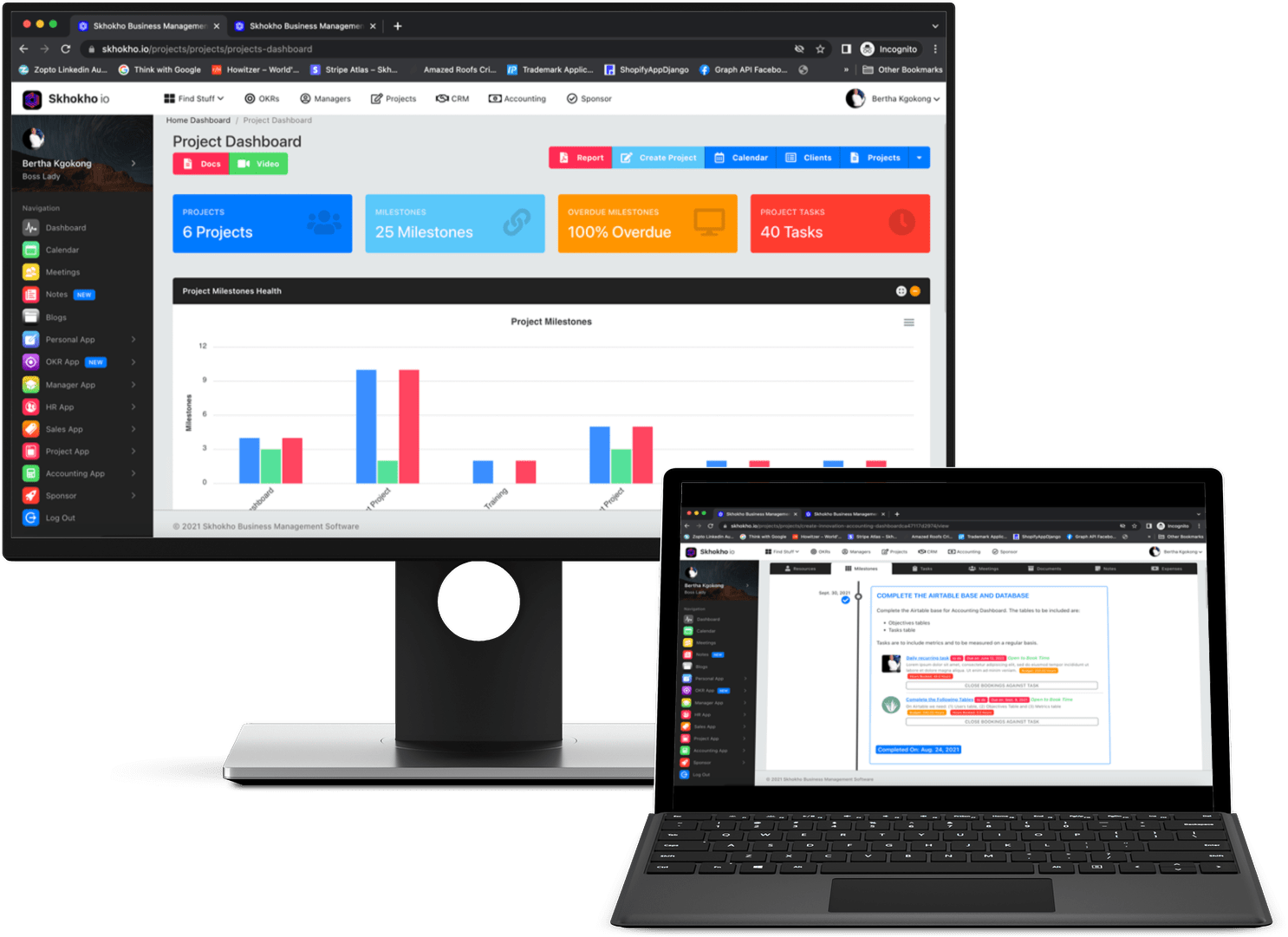Project Management Software in Today's Business Environment
Project management software has become increasingly popular in recent years as businesses strive to manage projects more efficiently and effectively. With the rise of remote work and global collaboration, PM software has become an essential tool for businesses of all sizes and industries.
In this blog post, we will explore the benefits of project management systems in today's business environment. Whether you're a small business owner or a project manager in a large organization, this blog post will help you understand the importance of project management software and how it can benefit your business.

We will cover the following topics:
- The Basics of Project Management Software
- The Benefits of Project Management Software
- Choosing the Right Project Management Software for Your Business
- Popular project management software tools and their unique features
- Best Practices for Implementing Project Management Software in Your Business
The Basics of Project Management Tools
Project management software is a digital tool designed to help businesses plan, execute, and manage projects more efficiently. It offers a range of features that streamline project workflows, improve collaboration, and provide real-time visibility into project progress.
Some of the key features of a good project management software include:
- Task management: The ability to create and assign tasks, set deadlines, and track progress.
- Team Collaboration tools: Features that enable project team to communicate, share files, and provide feedback.
- Time tracking: The ability to track time spent on tasks and projects, and generate reports.
- Manage Resource Allocation: Tools that help businesses allocate resources, such as people, time, and money.
- Reporting: A feature that provides insights and data on project progress, helping teams make informed decisions.
These features are important for businesses that want to streamline their project management processes, enhance collaboration, and make data-driven decisions. By utilising these features, businesses can increase their efficiency and productivity, better allocate their resources, and ultimately achieve greater success in their projects.

The Benefits of Project Management Software
A Project management platform offers many benefits to businesses looking to manage projects more efficiently and effectively. Here are some of the key benefits:
Improved Organization and Collaboration: A Project management app provides a centralized platform for teams to collaborate, do project planning, and track project progress. This helps teams stay organized and ensures everyone is on the same page, leading to improved collaboration and better results.
Increased Efficiency and Productivity: Project management software helps teams manage tasks and deadlines, reducing the risk of delays and improving efficiency. This allows teams to focus on their work and be more productive.
Real-time Visibility and Tracking of Project Progress: Project management software provides real-time visibility and tracking of project progress, allowing teams to see how tasks and projects are progressing at any given time. This helps teams identify potential issues and address them before they become bigger problems.
Better Resource Allocation and Time Management: Project management software helps teams manage and allocate resources, such as team members, equipment, and budget. This allows teams to manage their time more effectively and ensure that resources are being used efficiently.
Enhanced communication and feedback: Project management software provides a platform for team members to communicate and collaborate on tasks and projects. This enhances communication and feedback, leading to improved decision-making and problem-solving.
Reduced risks and errors: Project management software provides a platform for tracking and monitoring project's progress, which can help to identify potential risks and errors early on. This allows teams to take corrective action and reduce the risk of delays or errors.
Overall, project management software can help businesses to streamline their workflows, improve communication and collaboration, and achieve better project outcomes.
How to Choose the Right Project Management Software for Your Business

Selecting the right project management software can be a daunting task, with so many options available in the market. However, choosing the right software is crucial for improving project efficiency, productivity, and overall project success. In this section, we'll explore the key factors to consider when selecting project management software, as well as popular project management software tools and their unique features.
Key factors to consider when selecting project management software
Choosing the right project management software for your business can be a daunting task, but it's important to select a tool that aligns with your business needs and goals. Here are some key factors to consider when selecting project management software:
Size of your business: The size of your business will determine the complexity of the software you need. Smaller businesses may only require basic task management features, while larger businesses may need more advanced features such as resource management and reporting.
Budget: Project management software can range from free to thousands of dollars, so it's important to consider your budget when selecting a tool. Some software may offer a free trial or a limited version of their tool, while others may require a subscription fee.
Industry: Some project management software tools are designed for specific industries, such as software development or construction. It's important to select a tool that is tailored to your industry and business needs.
Integration: Project management software should integrate with your existing tools and systems, such as your email or calendar. This helps to streamline workflows and improve productivity.
User experience: The software should be easy to use and have an intuitive interface. A tool that is difficult to use may result in low adoption rates among team members.
Leading project management software tools and their unique features
There are many types of project management software available in the market today, ranging from basic task management tools to comprehensive enterprise-level solutions. Some popular project management software tools include:
#1. Skhokho Project Management Software: Skhokho Project Management Software has to be the best project management software thus far. It is a powerful and easy-to-use project management tool that helps businesses manage tasks, projects, and teams. This software is designed to help businesses of all sizes manage projects more efficiently. It offers a range of advanced project management features, including task management, allocating project resources, time tracking, monitoring project status, reporting, and collaboration.

Skhokho also offers additional project functionalities such as project accounts, meeting management, notes, and expenses.
#2. Trello: This is a popular task management tool that allows teams to create and track tasks on visual boards.
#3. Asana: This software is designed to help teams manage projects and workflows, providing features such as task management, team communication, and reporting.
#4. Wrike: This software offers a range of project management features, including task management, time tracking, and reporting.
Overall, the right project management software will depend on your business needs and goals. It's important to research and evaluate different options to find the best fit for your organization.
Best Practices for Implementing Project Management Software in Your Business
Steps to take before implementing project management software:
Before implementing project management software in your business, it's important to take the following steps:
- Evaluate your business needs and goals: Determine what you want to achieve with project management software and what features are most important for your organization.
- Identify key stakeholders: Get buy-in from key stakeholders, such as department heads and project managers, to ensure a smooth adoption process.
- Train your team: Provide training for team members to ensure they understand how to use the software and its features effectively.
- Set up your software: Set up the software to align with your business needs, including project templates, workflows, and notifications.

Tips for successful adoption and usage of project management software
Successful adoption and usage of project management software can greatly benefit businesses, but it requires careful planning and execution. Here are some tips to ensure that your business is successful in adopting and using project management software:
- Encourage collaboration: Encourage team members to use the software to collaborate and communicate on tasks and projects.
- Promote accountability: Set expectations for team members to use the software consistently and hold them accountable for using it effectively.
- Monitor progress: Monitor project progress regularly and make adjustments as needed to ensure success.
- Provide ongoing training and support: Provide ongoing training and support to ensure team members feel comfortable and confident using the software.
- Incorporate feedback: Incorporate feedback from team members to improve adoption and usage of the software.
By following these best practices, you can ensure a successful implementation and adoption of project management software in your business, leading to improved efficiency, productivity, and project outcomes.

Final thoughts and recommendations
A Project management system can provide numerous benefits to businesses, including improved organization and collaboration, increased efficiency and productivity, real-time visibility and tracking of project progress, better resource allocation and time management, enhanced communication and feedback, and reduced risks and errors.
When choosing project management software for your business, it's important to consider key factors such as your business needs and goals, as well as the unique features of each software option. Implementing project management software successfully requires careful planning and training, as well as ongoing support and monitoring.
In summary, adopting project management software can have a significant positive impact on your business. By choosing the right software and implementing it effectively, you can improve project outcomes, streamline workflows, and achieve greater success. We recommend taking the time to evaluate your options and plan for a successful implementation to maximize the benefits of project management software in your business.









